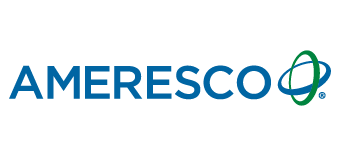March 2, 2026
A few weeks ago, Ameresco released our 2023 Impact Report centered on our mantra of Doing Well by Doing Good. The report reflects the inherent and grounded purpose behind our company’s success in delivering solutions that enable a resilient and net zero future. All communities, particularly those that are economically disadvantaged or historically under resourced, should have the opportunity to enjoy the benefits of renewable energy and energy efficiency upgrades, clean infrastructure, and climate change mitigation.
In fact, this has been part of my personal ethos for as long as I can remember. Growing up in a small rural village in Greece with no electricity or running water, I understand the importance of access to energy as we know it.
An equitable approach to sustainability efforts is critical considering the environmental burden that impacts socially vulnerable populations. Residents within low-income neighborhoods are often found to live closer to sources of air pollution and carbon emissions such as factories, ports, and major roadways. One study found that disadvantaged populations often experience exposure to more pollutants than their own emission-producing activities generate.
In an effort to mitigate environmental inequalities, equitable solutions are on the rise. For example, the Federal government’s Justice40 Initiative, established in 2021, has made it a goal to dedicate at least 40% of investments marked for clean energy development, affordable and sustainable housing, and clean water and wastewater infrastructure to disadvantaged communities that have been overburdened by legacy pollution and environmental risks.
As we deliver sustainable solutions for our customers, we strive to incorporate environmental justice and community development into our work across the nation. For example, we are developing state of the art, energy efficient facilities for Matchbook Learning Schools in Indiana. This high school and vocational facility will not only provide students with an inspiring place to learn but generate a pathway for graduates to pursue technical careers and help close the skilled-labor gap impacting the Indianapolis area.
Ameresco has also had success with a local workforce development and economic empowerment approach in numerous projects like our Philly Streetlight Improvement Project with the Philadelphia Energy Authority. By sourcing components and assembling them locally, Ameresco is tapping into the city’s workforce and resources, thereby fostering a community-centric approach. In addition to the environmental benefits, energy savings, public safety enhancements, and robust community engagement, the project is also expected to achieve 58% minority and women-owned participation.
Our partnership with Neighborhood Sun on a solar project in Montgomery County, Maryland is another shining example of community investment. The project is designed to be the nation’s largest community solar farm that is 100% dedicated to low and moderate-income (LMI) residents enabling equitable access to affordable, clean energy and championing environmental justice throughout the region.
I am proud of the work Ameresco is doing in collaboration with our customers and partners to ensure all communities that we work within have access to the benefits that efficient and renewable energy deliver. Listening to the community needs goes a long way in understanding the obstacles and opportunity in each environment. It is imperative that we continue working together to break down barriers of access and support a just clean energy transition for all.
# Originally published on LinkedIn. #
This free resource provides a tangible roadmap for organizations looking to reduce their carbon footprint and achieve net zero emissions. The built environment is responsible for roughly 40% of energy-related carbon emissions. This resource offers a holistic approach to cutting consumption, costs, and carbon and practical solutions for facility owners and operators.



